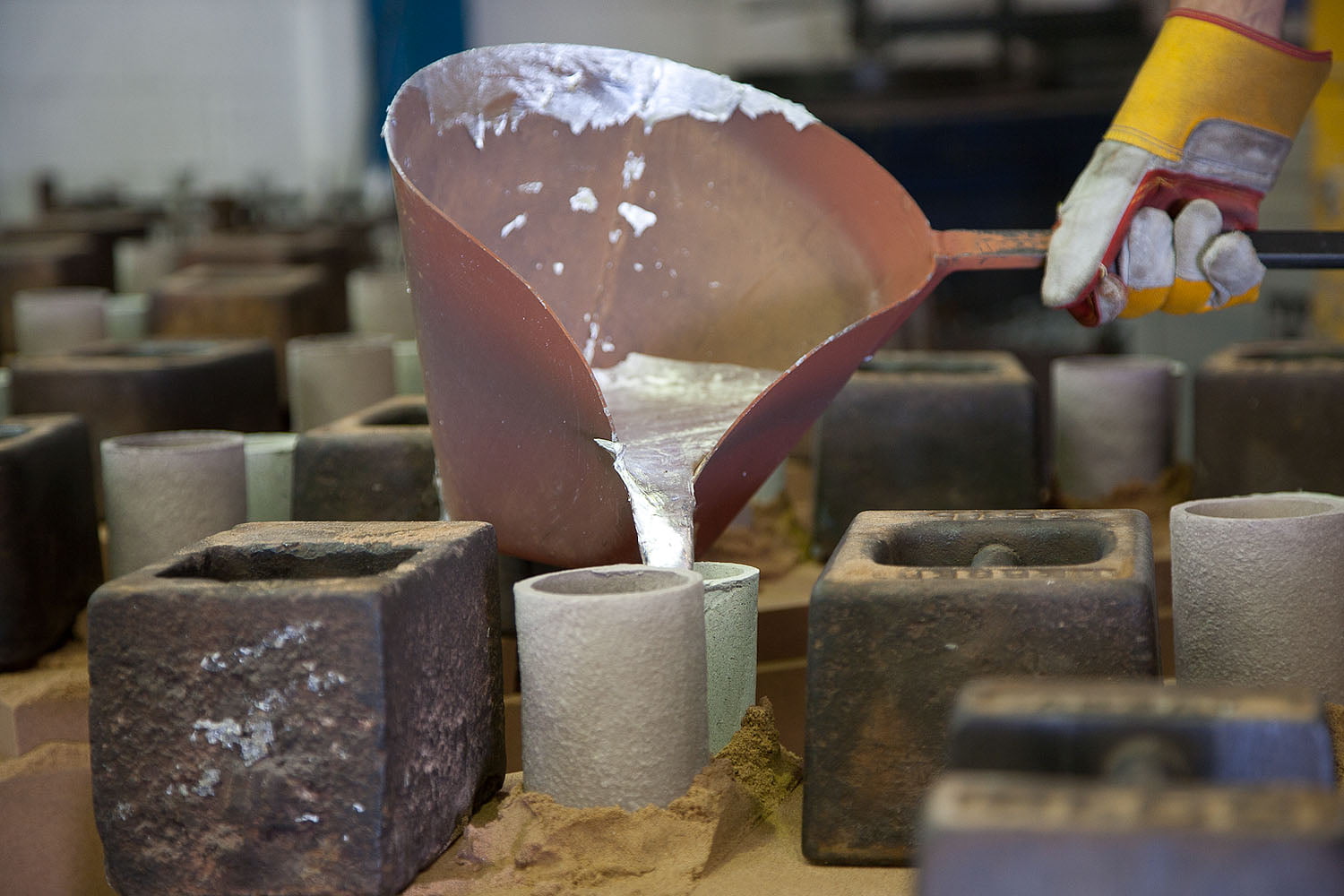Published - 24th Oct 2017

Porosity is a commonly used term in the metal casting industry to describe a certain type of casting defect. In this blog, we’ll be looking at this problem and exploring ways to prevent it through changes to the design and manufacturing process.
In everyday terms, the word ‘porous’ is used to describe a material with small holes that allow liquid or air to pass through. It derives from the Greek word ‘poros’ for ‘pore’ – which means ‘passageway’.
Trapped air or gasses can cause porosity on the surface or inside the casting. During the casting process, gas bubbles form as the material cools and solidifies in the casting mould. This is because the molten metal can hold a large amount of dissolved gas in its liquid form but not in its solid state.
Gas porosity can take the form of minute bubbles or larger holes such as blowholes or blisters. Surface defects can generally be detected by manual inspection but, if porosity is hidden inside the casting, it may be difficult to spot. In these instances, it would be picked up through dye penetrant or X-ray testing.
Gas porosity can reduce the strength of the material in the affected part of the casting. So, it is important that this is eliminated or reduced as far as possible.
Various issues can cause gas porosity. Turbulence, from pouring the molten metal into the mould, can often introduce gasses. So, changing the pouring technique or altering the running system may be needed.
At Haworth Castings, we design bespoke running systems for each individual customer project to prevent any issues.
Another solution is to add nitrogen to the molten metal before the pour. The nitrogen reacts with any gas – creating a compound that floats to the surface before it is removed.
Hot Isostatic Pressing, known as HiP or HiPping, is also used to eliminate porosity. Using this process, the casting is placed in a high temperature furnace, which is enclosed in a pressurised containment vessel. The casting is then heated in an inert gas, such as argon, before ‘isostatic’ pressure is applied to eliminate the porous elements.
Our foundry team is highly experienced in managing these issues and ensuring that porosity is prevented at every stage of the casting process.
For more information on any aspect of our casting work, please call us today on +44 (0)1794 512685 or email us: sales@haworthcastings.co.uk
If you have a project, talk to our experienced sales team
Contact us